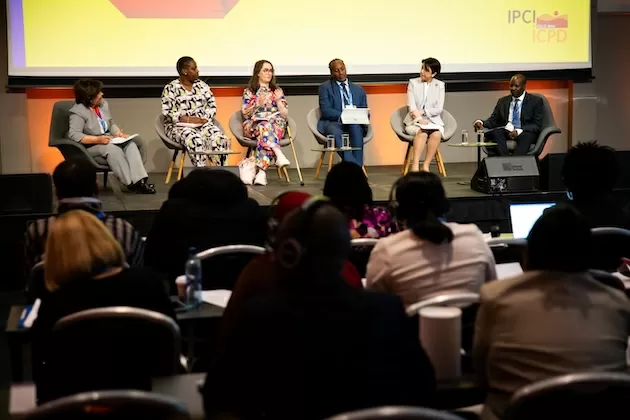Technology has become an integral part of our daily lives, transforming the way we live, work and interact with others. It has the power to bridge gaps and create opportunities for growth and progress, and this was evident at the recent IPCI Oslo conference. Technology was highlighted as a core theme for its significance in achieving the objectives of the Cairo Programme of Action, specifically in the field of sexual and reproductive health rights.
The International Conference on Population and Development (ICPD) was held in Cairo in 1994, where a groundbreaking agenda was set to prioritize women’s empowerment, gender equality, and reproductive health rights. This landmark conference laid the foundation for the Cairo Programme of Action, which aims to ensure universal access to sexual and reproductive health services and rights by 2030. And as we approach the deadline, it is crucial to explore innovative ways to accelerate progress and overcome challenges. This is where technology comes into play.
When harnessed effectively, technology can be a powerful tool in achieving the goals of the Cairo Programme of Action. In the health sector, it can bridge accessibility gaps and improve the delivery of sexual and reproductive health services to marginalized and remote communities. With the rise of telemedicine and digital health platforms, individuals can now access health information, consultations, and even medication through their smartphones. This not only increases access to services, but also empowers individuals to take control of their own health.
Moreover, technology has the potential to spread awareness and education about sexual and reproductive health rights. In many societies, these topics are still taboo, and individuals, particularly women, lack the necessary information and resources to make informed decisions about their bodies and health. With the help of technology, this barrier can be broken. Through social media, online campaigns, and mobile applications, accurate and reliable information can be disseminated to the masses, promoting awareness and empowering individuals to make healthy choices.
The IPCI Oslo conference was a perfect platform to showcase the positive impact of technology in the field of sexual and reproductive health. Various sessions and workshops highlighted the use of technology in addressing challenges and promoting progress. One such session focused on the role of artificial intelligence (AI) in advancing sexual and reproductive health. AI has the potential to analyze large amounts of data and provide insights that could improve health outcomes and inform policies. It can also assist in predicting potential health risks and identifying high-risk groups, allowing for targeted interventions and resource allocation. Furthermore, AI-powered chatbots have been developed to provide personalized sexual and reproductive health information to individuals, creating a safe and private space for them to ask questions and seek guidance.
Another session at the conference focused on the use of virtual reality (VR) in promoting sexual and reproductive health education. VR has the power to transport individuals to different settings and scenarios, allowing them to experience and learn in a more immersive and impactful way. In the context of sexual and reproductive health, VR can be used to simulate different scenarios, such as visiting a health clinic or using contraceptives, to educate individuals and dispel misconceptions.
It is essential to note that technology should be used in a responsible and ethical manner, particularly in the health sector. Privacy and confidentiality must be prioritized, and vulnerable groups must be protected from potential harm or exploitation. The use of technology should also complement existing health systems and not replace them. It is crucial to involve healthcare professionals and communities in the development and implementation of technology-based solutions to ensure their effectiveness and sustainability.
In conclusion, technology emerged as a key theme at the IPCI Oslo conference for its potential to accelerate progress towards achieving the objectives of the Cairo Programme of Action. It is a valuable tool that can bridge accessibility gaps, promote awareness, and improve the delivery of sexual and reproductive health services. However, it is vital to use technology responsibly, ethically, and in collaboration with all stakeholders to ensure its success. Let us embrace technology as a solution and utilize it to create a better and healthier future for all.



